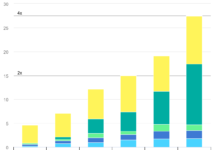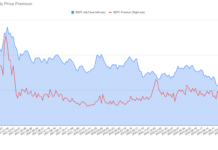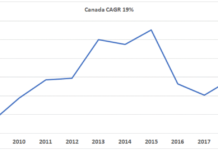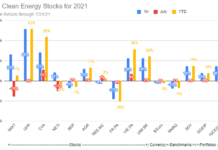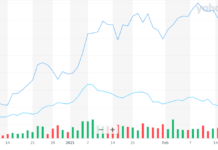by Debra Fiakas CFA
Ever since British scientists worked a little magic with some scotch tape, the world has been captivated their discovery of graphene, the single atom thick material that can conduct electricity and is at once strong and bendable. Investors have been dreaming graphene could be sprinkled across industry like pixie dust, creating valuable new products and driving company valuations to lofty heights. Reality has been a bit less grand.
To be clear, there have been successes. As noted in the June 9th article, “Graphene in the Oil Patch,” the wonder material has been found to be of benefit in water-based drilling fluid by limiting dispersion of drilling fluids into surrounding rocks. Graphene NanoChem Plc. already sells a high performance drilling fluid branded as Plat Drill, which has been enhanced by graphene nanomaterials. The article “Plasma for Graphene” published on June 12th, described the conductive inks of Haydale Graphene Industries, Plc. (HAYD: AIM). Indeed, fluids and solutions appear to be the easiest road to commercial products.
Haydale is not the only company to give investors a chance to capture some of that ‘lofty value.’ Graphene 3D Labs, Inc. (GPHBF: OTC or GGG: TSX) has developed three dimensional printing filaments that have conductive properties. The company is marketing the filaments for printing electronic circuitry with the brand name Black Magic 3D. According to the company’s most recent filing with Canada’s SEDAR, there have been no sales yet. However, management apparently believes the large and growing market for 3D printing is the ‘oyster’ for Graphene 3D Labs.
There are numerous industry size and growth estimates. Canalys is typical with a prediction of growth from $2.5 billion in 2013 to $16.2 billion by 2018, implying a compound annual growth rate of 45.7% in the forecast period. The installed base of 3D printers might be a better focus for investors. IDC predicts that worldwide 3D printer unit sales and installed base will grow at a combined compound annual growth rate of 59% through 2017, with the value of shipments attaining a 27% CAGR in the forecast period.
Like HAYD, the stock of Graphene 3D Labs trades in small volumes at prices below USD$1.00. Such stocks can be viewed as an option on management’s ability to execute on the strategic business plan. In the case of Graphene 3D Labs, a fast growing and highly populated customer group using 3D printers is the target market. Typically such fragmented markets present an easier mark for a small, modestly capitalized company.
Graphene 3D Labs reported over US$1.1 million in cash on its balance sheet at the end of February 2015. The cash is primarily from a private placement of common stock that was completed in August 2014, raising US$1.6 million. The company has been using about US$155,000 per month to support operations, suggest management has about another six months before they need to raise more capital. Some investors might be worried about the dilution. Others might see the capital raise as an opportunity to catch some ‘value creating’ pixie dust.
Debra Fiakas is the Managing Director of Crystal Equity Research, an alternative research resource on small capitalization companies in selected industries.
Neither the author of the Small Cap Strategist web log, Crystal Equity Research nor its affiliates have a beneficial interest in the companies mentioned herein.

